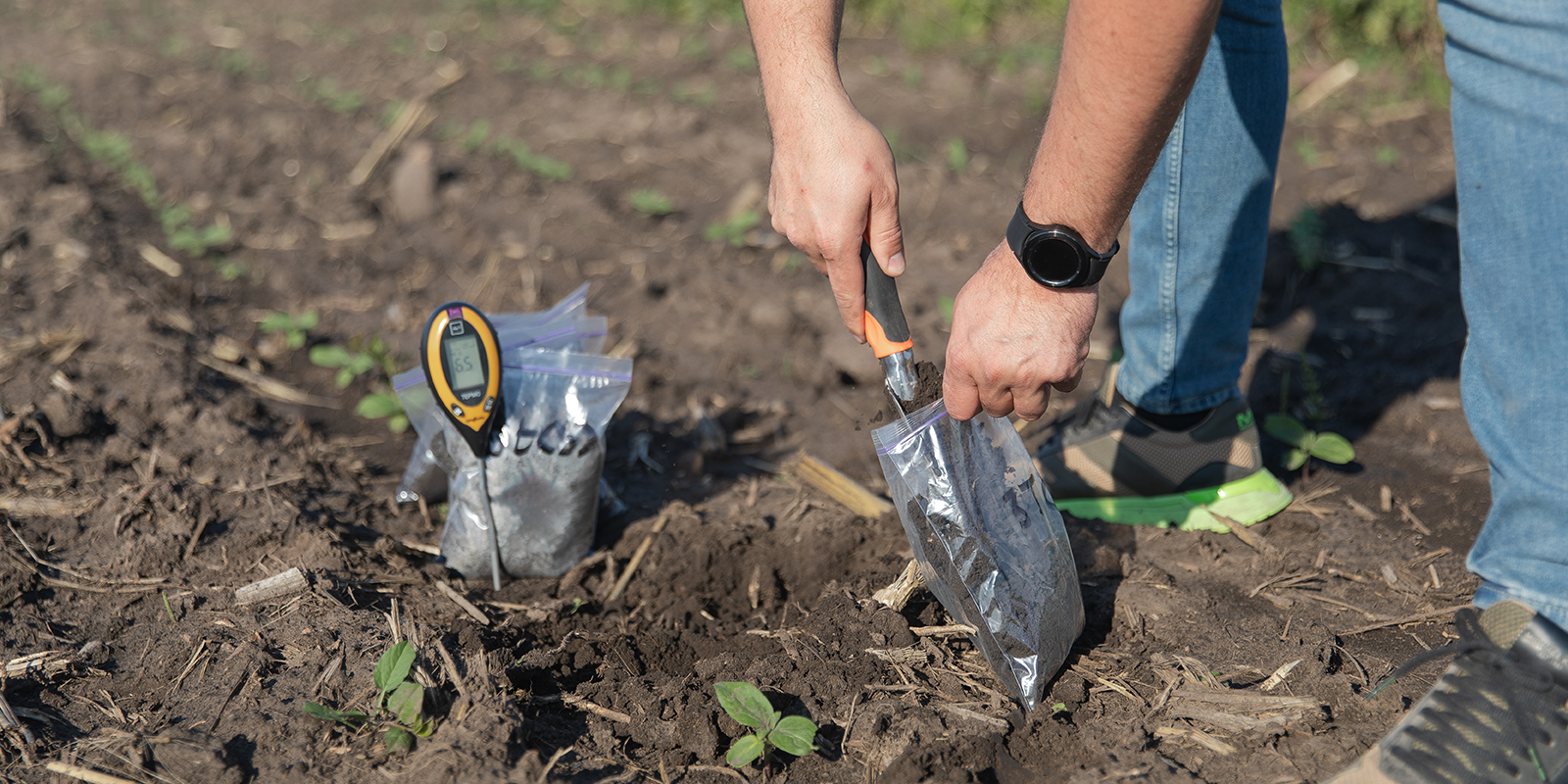RAU’s research into the impact of war on Ukraine’s farmland to benefit from £500,000 Defra funding

14 July 2025
Ongoing research by the Royal Agricultural University (RAU) looking into how arable farmland in Ukraine is being affected by the conflict has been boosted by £500,000 of funding from Defra.
Since the onset of Russia’s invasion in February 2022, Ukraine’s farmlands have suffered significant damage from Russian bombardments and other war-related activities, introducing potentially toxic elements, known as heavy metals, into the agricultural landscape, leading to the degradation of soil health.
This soil pollution poses a potentially long-term threat to the country's food production, food safety, and agricultural productivity, which is known as “the breadbasket of Europe”.
The full extent of soil damage and how this war-related pollution will impact crop safety and food security within the wider food system remains unknown. In tackling this issue, the RAU project, which launched in late 2022, is already analysing samples in the field to assess the severity of the pollution and explore potential solutions.
Professor Mark Horton, Pro Vice-Chancellor for Research and Enterprise at the RAU, is leading on the work. He said: “The war in Ukraine has severely damaged soil health across bombarded agricultural regions, threatening future food production and the country’s long-term recovery.
“This research will enhance Ukraine’s capacity to restore and manage its soils, laying an early groundwork for a more resilient, productive, and sustainable agriculture.
“With this funding, the RAU will work closely with our Ukrainian partners to train local experts, establish state-of-the-art soil laboratories, and analyse thousands of soil samples across key farming regions.
“These efforts are essential to building the tools and capacity Ukraine needs to safeguard its soil, ensure food security, and support national regeneration.”
The funding will enable the RAU to continue, and expand, its work with Sumy National Agrarian University, with which it twinned in the spring of 2022, to train Ukrainian experts, establish soil laboratories, and analyse more than 8,000 soil samples across five regions, including Sumy and Kherson.
Their investigations have already uncovered heavy metals in crater samples, and continued research is essential to better understand the nature of the contamination and any potential impact on agriculture.
This funding is part of the UK Government’s continued support for Ukraine and follows the UK’s launch of the Grain Verification Scheme, earlier this year, to help track grain stolen from occupied areas of Ukraine, as part of its landmark 100-year partnership with the country.
Daniel Zeichner, Minister for Food Security and Rural Affairs, said: “The UK’s support for Ukraine is ironclad. This research is vital, helping Ukraine in understanding the impact the pollution from war has had on its soils and giving them vital tools to recover farmland.
“This funding forms part of our commitment in 100-year partnership with Ukraine to stand shoulder-to-shoulder with their farmers to deliver food production and environmental protection for the nation.”